April 26, 2017 •
Florida Senator Resigns Following Outburst
After making inflammatory remarks about his African-American colleagues, Sen. Frank Artiles resigned from the state legislature. Artiles faced mounting pressure to step down following an outburst at a private Tallahassee club directed toward Democratic Sens. Audrey Gibson and Perry Thurston. […]
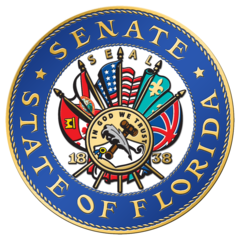 After making inflammatory remarks about his African-American colleagues, Sen. Frank Artiles resigned from the state legislature. Artiles faced mounting pressure to step down following an outburst at a private Tallahassee club directed toward Democratic Sens. Audrey Gibson and Perry Thurston. He also referred to fellow Republicans by a racial slur.
After making inflammatory remarks about his African-American colleagues, Sen. Frank Artiles resigned from the state legislature. Artiles faced mounting pressure to step down following an outburst at a private Tallahassee club directed toward Democratic Sens. Audrey Gibson and Perry Thurston. He also referred to fellow Republicans by a racial slur.
Artiles later apologized for his comments on the floor of the Senate, but it was not enough to quell the outrage from both sides of the aisle.
Gov. Rick Scott will schedule a special election to fill the Senate District 40 seat and, in the meantime, Artiles’ staff will remain in place to serve constituents.
April 6, 2017 •
Hillsborough County Commissioners Ban Lobbyist Text Messages
Following in the path of the state’s House of Representatives, Hillsborough County Commissioners approved a measure banning text messages and other electronic communications with lobbyists during commission meetings. First introduced in December, the initial proposal only placed restrictions and obligations […]
 Following in the path of the state’s House of Representatives, Hillsborough County Commissioners approved a measure banning text messages and other electronic communications with lobbyists during commission meetings.
Following in the path of the state’s House of Representatives, Hillsborough County Commissioners approved a measure banning text messages and other electronic communications with lobbyists during commission meetings.
First introduced in December, the initial proposal only placed restrictions and obligations on lobbyists; however, two amendments were approved to create responsibilities for commissioners as well.
Commissioners, like lobbyists, must disclose to the lobbyist registration manager any unavoidable communications and commissioners will be subject to fines for violations. The measure passed by five votes to two.
March 10, 2017 •
Florida House Passes Bill to Slow Revolving Door
The Florida House passed a bill today to create greater separation between lawmakers and lobbyists. House Bill 7003 increases the time former public officials must wait before lobbying from two to six years. The measure continues a trend set by […]
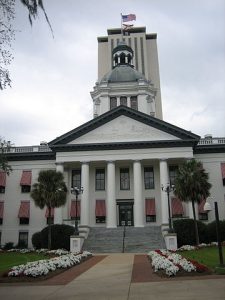 The Florida House passed a bill today to create greater separation between lawmakers and lobbyists.
The Florida House passed a bill today to create greater separation between lawmakers and lobbyists.
House Bill 7003 increases the time former public officials must wait before lobbying from two to six years.
The measure continues a trend set by the new House Speaker, Richard Corcoran, who began the session by implementing new rules to change lobbying practices and increase public confidence in the legislature.
The bill’s sponsor, Rep. Larry Metz, believes the new restriction will prevent legislators from favoring lobbyists in order to land high-paying jobs after leaving office.
February 6, 2017 •
City of Tampa Launches Online Lobbyist System
The Tampa Ethics Office launched an online system for lobbyists to log meetings with city officials. The system replaces the paper lobbyist disclosure form. Just like in the past, a log entry must be submitted within three days of a […]
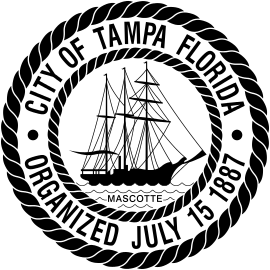 The Tampa Ethics Office launched an online system for lobbyists to log meetings with city officials. The system replaces the paper lobbyist disclosure form.
The Tampa Ethics Office launched an online system for lobbyists to log meetings with city officials. The system replaces the paper lobbyist disclosure form.
Just like in the past, a log entry must be submitted within three days of a meeting with a city official.
Currently, the system functions only as a means to submit meeting logs, however, in the future it is expected to also allow for electronic submission of the annual expenditure report.
January 16, 2017 •
Florida House Considering Constitutional Amendment to Prevent Revolving Door
A proposed amendment to the Florida Constitution seeks to slow the revolving door between public officials and lobbyists. Currently, members of the legislature, statewide officials, and appointed officials must wait two years before lobbying on behalf of a principal. The […]
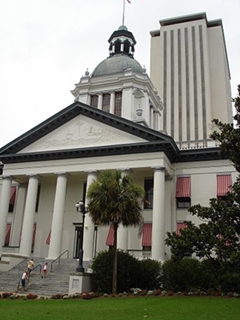 A proposed amendment to the Florida Constitution seeks to slow the revolving door between public officials and lobbyists.
A proposed amendment to the Florida Constitution seeks to slow the revolving door between public officials and lobbyists.
Currently, members of the legislature, statewide officials, and appointed officials must wait two years before lobbying on behalf of a principal.
The amendment, PCB 17-01, would extend the cooling-off period to six years. The change, proponents say, would prevent officials from ingratiating themselves to lobbyists in hopes of landing a high paying position after leaving office.
The amendment is being considered by the House Public Integrity and Ethics Committee and will be voted on at the Committee’s next meeting.
December 2, 2016 •
Florida House Offers Training Sessions for New Rules Affecting Lobbyists
The Florida House is offering training sessions to assist lobbyists in getting to know the new House Rules adopted last month. A seminar will be offered on December 13 and December 14, 2016, from 4:30 to 6:30 p.m. in Room […]
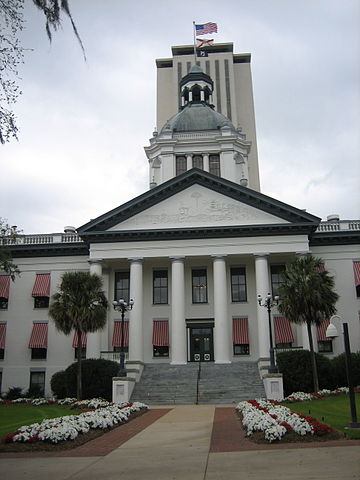 The Florida House is offering training sessions to assist lobbyists in getting to know the new House Rules adopted last month. A seminar will be offered on December 13 and December 14, 2016, from 4:30 to 6:30 p.m. in Room 404 of the House Office Building.
The Florida House is offering training sessions to assist lobbyists in getting to know the new House Rules adopted last month. A seminar will be offered on December 13 and December 14, 2016, from 4:30 to 6:30 p.m. in Room 404 of the House Office Building.
The training will focus on disclosure requirements and the new rules governing lobbyist and member conduct. Supplementary information and tutorials are available on the House’s website, www.myfloridahouse.gov, and lobbyists are encouraged to review the materials prior to attending a training session.
Photo of the Old and New Florida State Capitols by Infrogmation on Wikimedia Commons.
November 23, 2016 •
Florida Legislature Holds Organizational Session, Changes Ahead for Lobbyists
Both chambers of the Florida Legislature held organizational sessions yesterday, Nov. 22, 2016. Agenda items included selection of House and Senate leadership, administering the oath of office for new members and approving the rules governing the upcoming session. Newly minted […]
 Both chambers of the Florida Legislature held organizational sessions yesterday, Nov. 22, 2016. Agenda items included selection of House and Senate leadership, administering the oath of office for new members and approving the rules governing the upcoming session.
Both chambers of the Florida Legislature held organizational sessions yesterday, Nov. 22, 2016. Agenda items included selection of House and Senate leadership, administering the oath of office for new members and approving the rules governing the upcoming session.
Newly minted Speaker Richard Corcoran’s agenda to reduce the influence of lobbyists will take effect during the next session through the approved House Rules. Among the changes, lobbyists are now required to disclose the issues they are lobbying by filing an electronic notice of appearance; former members of the Legislature are prohibited from lobbying the House for six years; and no member of the House may accept private plane travel from a lobbyist or a corporation employing lobbyists.
The Senate also passed its rules but did not make such sweeping changes.
November 16, 2016 •
Florida’s Incoming Speaker Proposes Rules Changes for Lobbyists
Speaker-Designate Richard Corcoran recently proposed sweeping changes to House Rules for when lawmakers return to Tallahassee next year. Corcoran is specifically taking aim at lobbyists and their interactions with House members. Some of the proposed changes include banning lobbyists from […]
 Speaker-Designate Richard Corcoran recently proposed sweeping changes to House Rules for when lawmakers return to Tallahassee next year. Corcoran is specifically taking aim at lobbyists and their interactions with House members.
Speaker-Designate Richard Corcoran recently proposed sweeping changes to House Rules for when lawmakers return to Tallahassee next year. Corcoran is specifically taking aim at lobbyists and their interactions with House members.
Some of the proposed changes include banning lobbyists from texting lawmakers while in committee or in the House chamber, proposing a constitutional amendment banning elected officials from lobbying for six years after leaving office, and requiring lobbyists to disclose the bill or amendment they are trying to influence.
Newly elected lawmakers will be sworn in on November 22, 2016, and the 2017 regular session will begin on March 7.
November 14, 2016 •
Miami Beach Voters Reject Changes to Ethics Laws
Miami Beach residents rejected two ballot measures looking to ease certain restrictions on lobbyists. The first would have allowed architects and landscape architects to serve on city land-use boards and work on city projects at the same time, as long […]
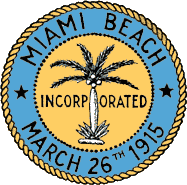 Miami Beach residents rejected two ballot measures looking to ease certain restrictions on lobbyists.
Miami Beach residents rejected two ballot measures looking to ease certain restrictions on lobbyists.
The first would have allowed architects and landscape architects to serve on city land-use boards and work on city projects at the same time, as long as they do not lobby for a project they would eventually vote on. Currently, these architects are not allowed to serve on a land-use board while working on a project for the city.
The second measure would have allowed lobbyists to forego filing an annual statement if they did not spend or receive money for lobbying during the year. Lobbyists currently must file annual reports regardless of their level of activity, and they are subject to fines for failing to do so.
September 21, 2016 •
Appeals Court Rules Against Ballot Measure in Miami-Dade County, FL
With the court battle over for the time being, a ballot issue affecting campaign finance and ethics laws in Miami-Dade County will not appear on the ballot this November. Earlier this month, the county appealed a circuit court’s order requiring […]
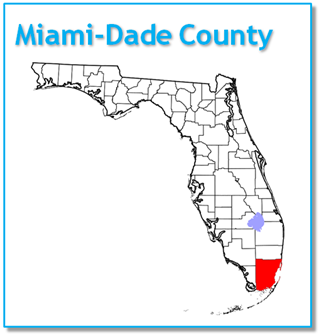 With the court battle over for the time being, a ballot issue affecting campaign finance and ethics laws in Miami-Dade County will not appear on the ballot this November.
With the court battle over for the time being, a ballot issue affecting campaign finance and ethics laws in Miami-Dade County will not appear on the ballot this November.
Earlier this month, the county appealed a circuit court’s order requiring the measure be placed on the ballot. The 3rd District Court of Appeal reversed the lower court this week, stating the County Commission acted within its authority to block the measure after determining it was not sufficient.
The appeals court left open the possibility of a challenge of the commission’s conclusion. An Accountable Miami-Dade, however, issued a statement following the ruling vowing to continue the fight in a future election.
September 12, 2016 •
County Court Orders Miami-Dade Proposal Placed on November Ballot
A judge has ordered a campaign finance ballot measure be placed on the ballot in November. After the County Commission rejected the proposal for containing legally insufficient language, An Accountable Miami-Dade filed a petition for a writ of mandamus last […]
 A judge has ordered a campaign finance ballot measure be placed on the ballot in November. After the County Commission rejected the proposal for containing legally insufficient language, An Accountable Miami-Dade filed a petition for a writ of mandamus last week.
A judge has ordered a campaign finance ballot measure be placed on the ballot in November. After the County Commission rejected the proposal for containing legally insufficient language, An Accountable Miami-Dade filed a petition for a writ of mandamus last week.
The political committee asked the court to force the County Commission, the Mayor, and the Supervisor of Elections to place the measure on the ballot. Circuit Court Judge William Thomas granted the petition, stating the group met all of the requirements to get a proposal on the ballot, including gathering nearly 130,000 signatures.
The County has appealed the ruling and a hearing has been set for next week before the Third District Court of Appeal.
If successfully passed, the measure will reduce the campaign contribution limit from $1,000 to $250 and ban vendors, their lobbyists, and immediate family members from contributing to county candidates.
September 12, 2016 •
Broward County Hospital System Launches Website for Lobbyist Registration
Broward Health, the county’s hospital system, has implemented its decade-old lobbyist registration policy through a new website. The website contains information about the policy, registration procedures, and expenditure reporting. Lobbyists engaged to lobby the North Broward Hospital District, its Board […]
 Broward Health, the county’s hospital system, has implemented its decade-old lobbyist registration policy through a new website. The website contains information about the policy, registration procedures, and expenditure reporting.
Broward Health, the county’s hospital system, has implemented its decade-old lobbyist registration policy through a new website. The website contains information about the policy, registration procedures, and expenditure reporting.
Lobbyists engaged to lobby the North Broward Hospital District, its Board of Commissioners, or its employees must register with the Vice President for Government Relations prior to engaging in lobbying. There is a registration fee of $40 for each client represented and registrations must be renewed by July 1 each year. Registered lobbyists must also file an annual statement of expenditures by July 30, covering July 1 of the prior year through June 30.
The policy also outlines requirements for lobbyist hired to represent the Hospital District before certain state, county, and local government units.
More information regarding lobbyist policies and procedures is available on Broward Health’s website at https://app.browardhealth.org/lobbyist.
August 3, 2016 •
Miami-Dade, FL Group Seeks to Reign in Money in County Elections
A political committee called An Accountable Miami-Dade is sponsoring a proposal to change campaign finance rules for county elections. The proposal would limit contributions to candidates to $250, rather than the state-set limit of $1,000, and county vendors and lobbyists […]
 A political committee called An Accountable Miami-Dade is sponsoring a proposal to change campaign finance rules for county elections.
A political committee called An Accountable Miami-Dade is sponsoring a proposal to change campaign finance rules for county elections.
The proposal would limit contributions to candidates to $250, rather than the state-set limit of $1,000, and county vendors and lobbyists would be prohibited from making contributions. A system of matching contributions with public funds would also be created.
The group delivered 125,000 signed petitions to the county clerk of courts. If enough are verified, the county commission will decide whether to adopt the measure or to place it on the ballot. The proposed changes would not take effect until the next county election cycle.
July 22, 2016 •
St. Petersburg, FL Councilwoman Looking to Ban Super PACs
St. Petersburg Councilwoman Darden Rice will introduce a proposed ordinance to abolish super PACs and ensure foreign money stays out of city elections. The ordinance would establish limits for independent expenditure committees and would require corporations contributing money to local […]
 St. Petersburg Councilwoman Darden Rice will introduce a proposed ordinance to abolish super PACs and ensure foreign money stays out of city elections.
St. Petersburg Councilwoman Darden Rice will introduce a proposed ordinance to abolish super PACs and ensure foreign money stays out of city elections.
The ordinance would establish limits for independent expenditure committees and would require corporations contributing money to local elections to certify they are not influenced by foreign entities.
Rice hopes the ordinance will act as a model for similar laws around the country, potentially leading to a legal challenge. This could give the U.S. Supreme Court an opportunity to reconsider Citizens United.
State and Federal Communications, Inc. provides research and consulting services for government relations professionals on lobbying laws, procurement lobbying laws, political contribution laws in the United States and Canada. Learn more by visiting stateandfed.com.


